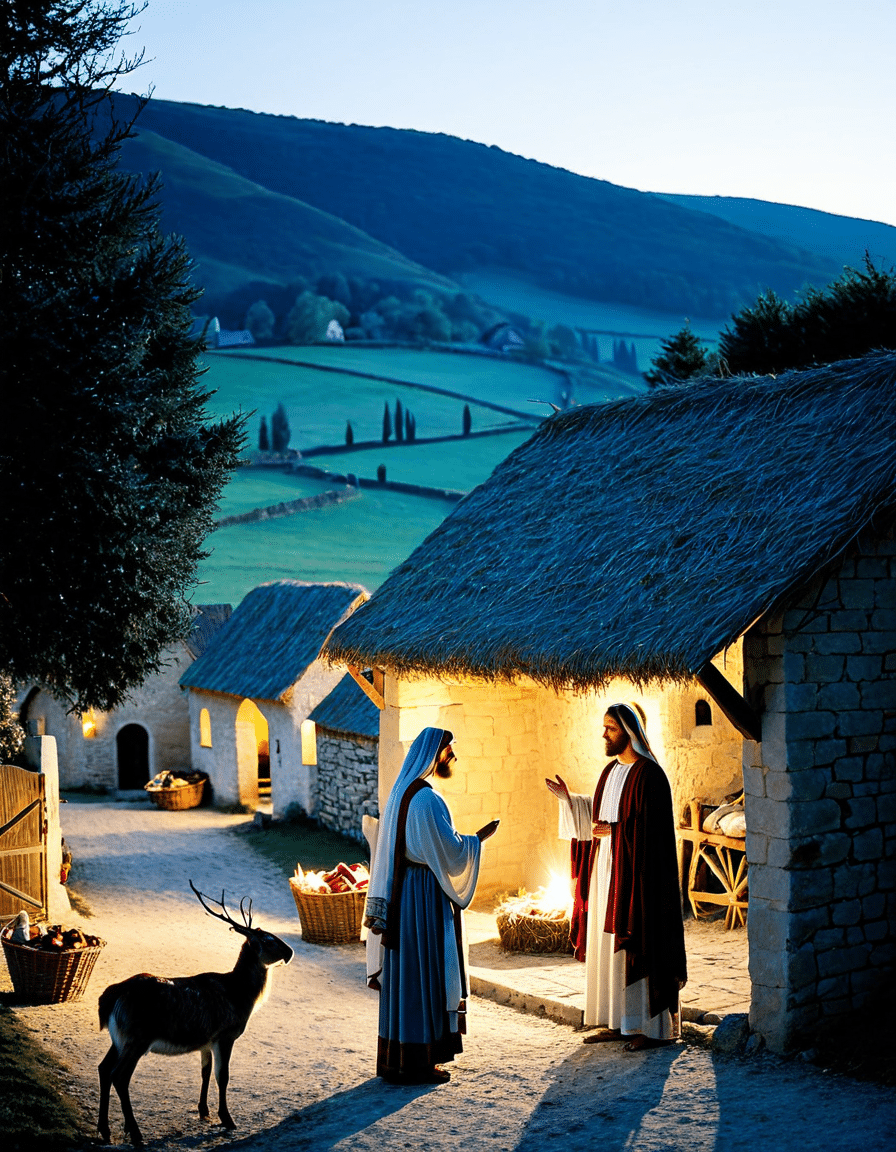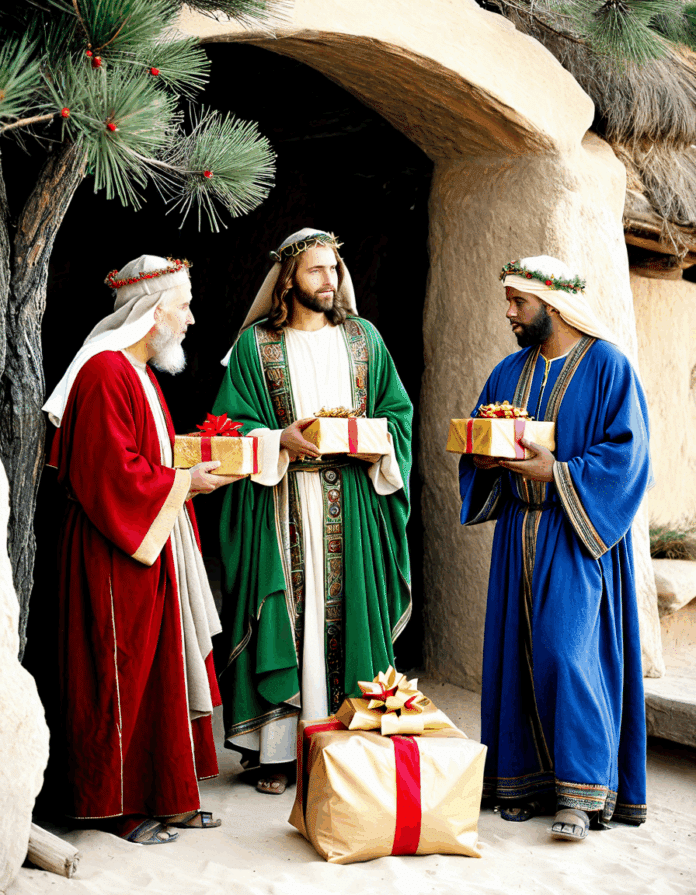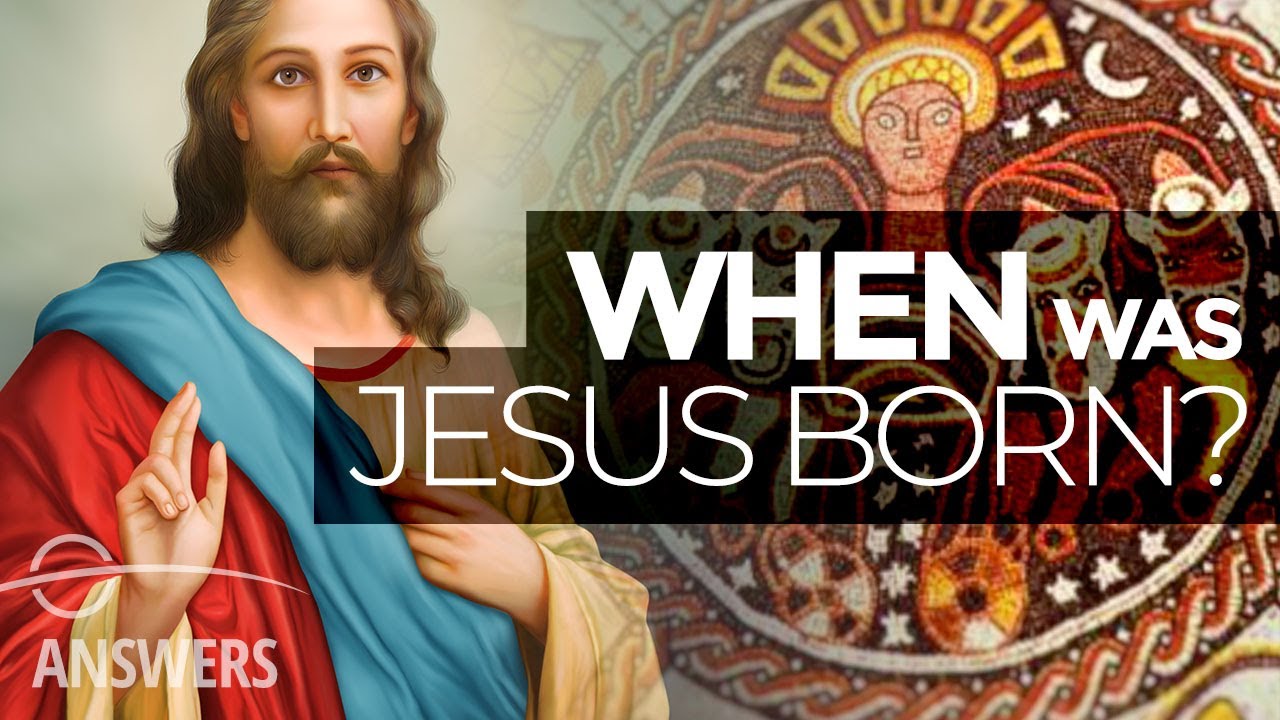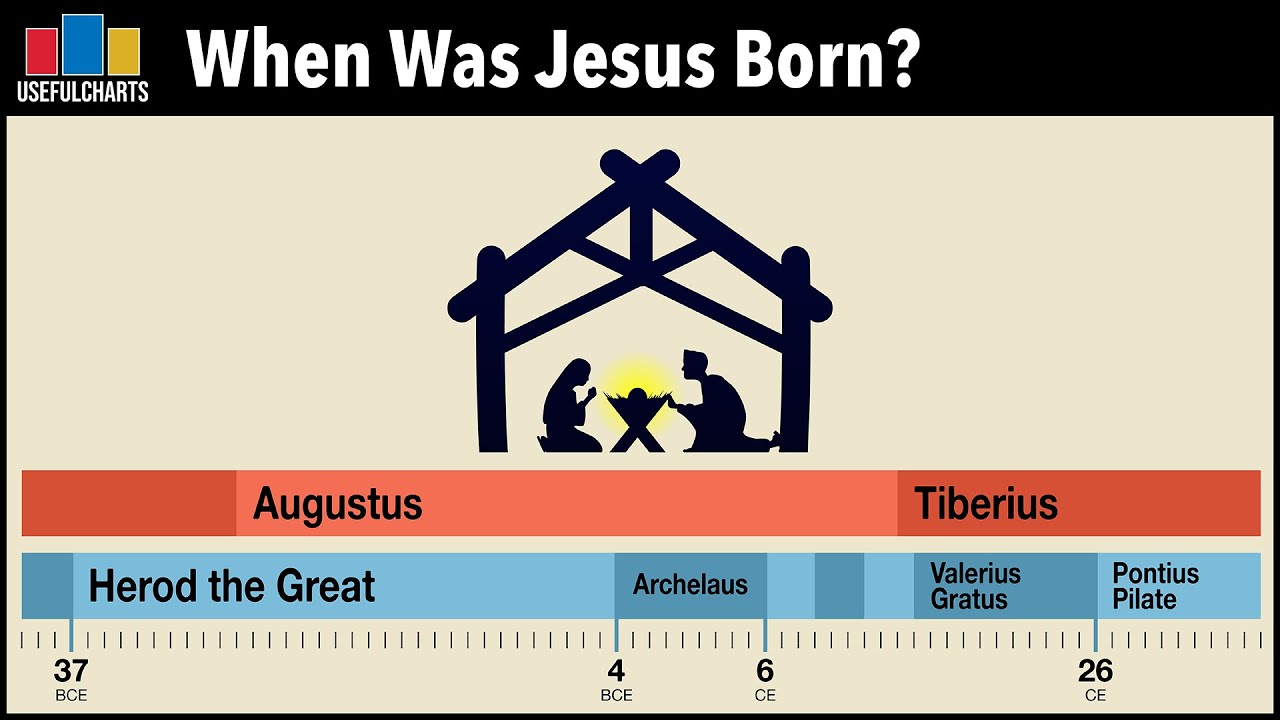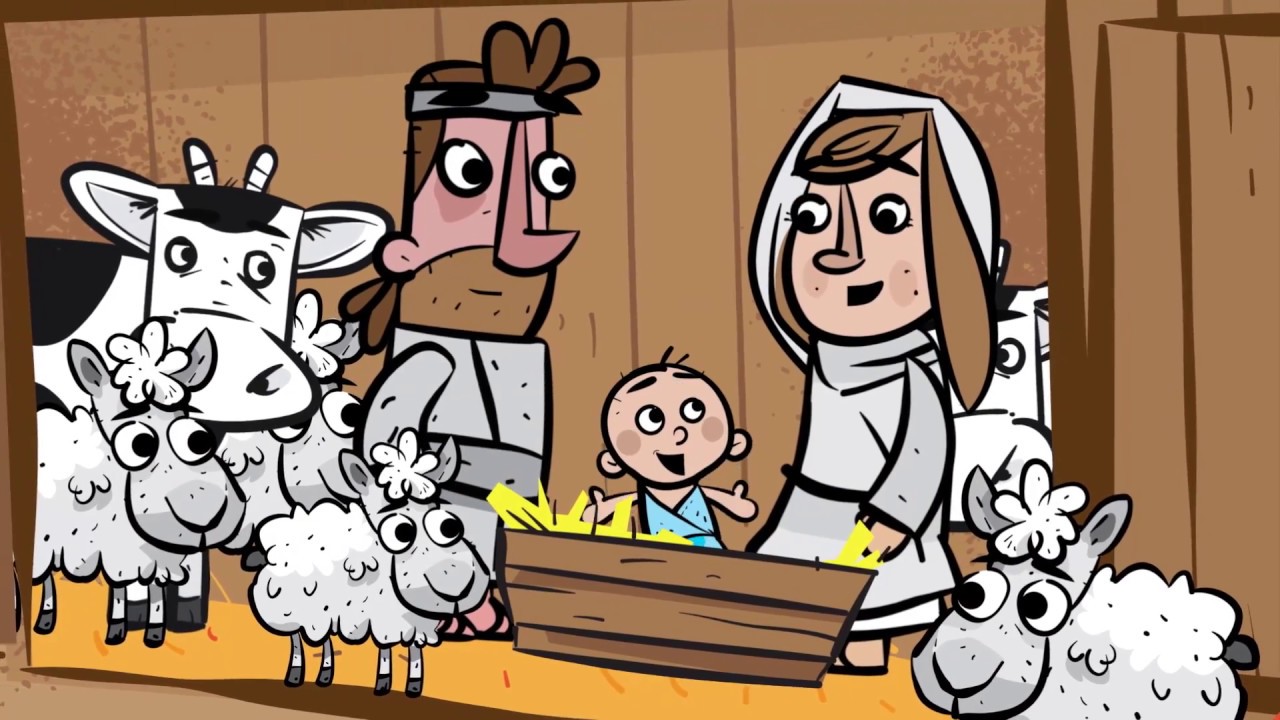The question of when Jesus was born has intrigued scholars, theologians, and historians for centuries. Despite the overwhelming significance of his birth to Christianity, pinpointing an exact date remains challenging. The story behind this event is not only theological but also steeped in historical context and cultural significance. As we dive into the various theories and historical nuances, we uncover a timeline filled with complexities that define both his birth and its lasting impact on the world.
Top 5 Theories: When Was Jesus Born?

1. The December 25th Controversy
One of the most recognized dates for Jesus’ birth is December 25th. This date was officially adopted by the Roman Empire in the 4th century A.D. as it coincided with the pagan festival of Saturnalia and the winter solstice. Some believe this timing was a strategic move to facilitate the acceptance of Christianity among pagan communities, making it easier to convert them by synchronizing key festivals. Urban legends often link December 25th to older traditions, but historical records suggest that early Christians were uncertain about the exact date.
However, the celebration of Christmas on this day has faced scrutiny. Critics argue that having a fixed date detracts from the mystery surrounding when Jesus was born. Yet, embracing this date has created a rich tapestry of cultural practices worldwide. The Christmas season, filled with family gatherings and festive lights, stems from the early church’s decision, forever tying Jesus’ birth to a cultural phenomenon that reveals humanity’s deeper yearning for hope and connection.
2. The Census of Quirinius
The Gospel of Luke brings another layer to the discussion by referring to a census taken during Quirinius’s governorship of Syria, estimated around 6-7 A.D. Some historians use this timeline to suggest Jesus was born shortly before this census, which has sparked debates about the accuracy of Gospel narratives. The touchy nature of these historical accounts leads scholars to wade through the murky waters of dates and events.
The census plays a crucial role in context. It reflects the ancient Roman administrative practices that affected the daily lives of individuals, including Joseph and Mary. Examining the historical accuracy behind the census reveals how intertwined Jesus’s story is with sociopolitical developments of the time. Yet, the when was Jesus born question remains entangled in speculation and interpretations.
3. Herod’s Reign and the Star of Bethlehem
Adding to the mix, the Gospel of Matthew cites Herod the Great’s decree to kill infants, believed to have occurred around 4 B.C. Given that Herod died in 4 B.C., historians painstakingly piece together timelines, suggesting Jesus was likely born before this event. The appearance of the Star of Bethlehem, associated with cosmic alignments, could also provide insight.
Some astronomers have posited that this star was a conjunction of planets occurring around 6 B.C. This captivating angle mixes astrology and astronomy, presenting it as a celestial marker of Jesus’ arrival. The interplay of time, context, and cosmology further complicates the understanding of when was Jesus born, yet these insights enhance the narrative of his significance in human history.
4. The Role of Jewish Festivals
Interestingly, some scholars steer the discussion towards the Jewish festival of Passover, expressing a belief that Jesus’ birth coincided with this significant event in the Jewish calendar. The connections between key festivals and global celebrations add depth to this discussion. Given Jesus’ Jewish heritage, it aligns his life with a broader spiritual narrative.
This perspective enriches the dialogue around when was Jesus born, leading to speculations of an April birth. As the festival celebrates liberation, some theorize this possible birthdate symbolizes a spiritual liberation through Jesus. Reflecting on these periods unveils complexities that tie historical events to the narrative surrounding one of history’s most pivotal figures.
5. The Age of the Earth Perspective
Examining the broader geological timeline, scientists estimate the Earth is approximately 4.54 billion years old. This almost overwhelming timescale provides a unique backdrop against which to view Jesus’ life. When juxtaposed with human accomplishments and significant figures, it highlights how fleeting our lives can seem.
In this expansive perspective, Jesus’ earthly presence represents a brief yet monumental moment in human history. His teachings, emphasizing morality and compassion, reverberate through generations, illustrating the profound influence of his life. This compelling lens puts the question when was Jesus born into a larger context of human experience and existential inquiry, encouraging those who wonder, “Are we there yet?” in search of meaning.
Cultural Impact: Are We There Yet?
Reflecting on the cultural significance of Jesus’ birth highlights its enduring nature across various societies. The phrase “are we there yet?” embodies humanity’s spiritual yearning, resonating deeply with the anticipation and hope surrounding his arrival. The Christmas narrative stands as a testament to this, symbolizing faith and the arrival of a messianic figure as cultures across the globe celebrate in varied ways.
Artistic representations, such as the Nativity scene, offer visual depictions that further enshrine his birth in the cultural consciousness. Songs like “O Holy Night” amplify this resonance, as they encapsulate messages of peace and goodwill that are crucial during the holiday season. These cultural artifacts remind us that Jesus’ birth transcends a single moment, echoing through time and continuing to influence contemporary society.
Moreover, the holiday has intermixed with ancient winter solstice traditions, creating a synergy between secular and sacred celebrations. As families gather to exchange gifts and partake in festive meals, the anticipation surrounding Jesus’ birth lives on, creating shared experiences that strengthen communities. Such interconnectedness illustrates how deeply his life and message continue to inspire discussions about values and ethics today.

Reflecting on the Timing and Its Implications
The challenge of determining Jesus’s exact birth date emphasizes the dynamic interplay between history, faith, and scientific inquiry. Rather than seeking a definitive answer, the journey invites contemplative discussions about the far-reaching implications of Jesus’ life. His profound influence on morality and ethics compels not just believers, but everyone, to explore its relevance today.
In 2026, as we reflect on historic timelines, the intersection of these cultural and spiritual narratives continues shaping societal values. The exploration of when was Jesus born unravels a tapestry rich with human experiences that still resonate in everyday life. The uncertainties surrounding historical and astronomical data only serve to highlight the intriguing quest for meaning in a vast universe.
Moreover, reflecting on Jesus’ life invites us to articulate our own moral compass as we navigate through an ever-changing society. His teachings encourage us to seek hope, kindness, and love, which remain vital today. In contemplating these timelines, we appreciate not just fragments of ancient texts, but a collective aspiration towards understanding the profound human experience throughout the ages.
In closing, delving into the question of when was Jesus born enriches our understanding of the cultural and spiritual narratives that shape our lives today. Rather than fixating on specific dates, we should embrace the broader themes that inspire and challenge us on our quest for deeper truths in life.
When Was Jesus Born: Fun Facts and Trivia
The Date Dilemma
So, when was Jesus born? The exact date remains shrouded in mystery, which has sparked debates for centuries. Most scholars believe he was born between 6 and 4 BC, but many Christians celebrate December 25th as his birthday. This is intriguing since the selection of this date has ties to various ancient festivals, including the Roman celebration of Saturnalia, a time of merriment! It’s like how popular anime like Attack on Titan draws massive crowds—there’s a reason why certain traditions stick around!
The Foretelling of His Birth
Interestingly, Jesus’ birth was prophesied long before his arrival. Many passages in the Old Testament hint at the coming of a savior, crucial to the narrative of Christianity. This anticipation is reminiscent of sports fandom, like watching the Bengals vs. Chargers game, where every fan is on the edge of their seat waiting for a big play that could change the game. Those Old Testament hints were the big plays of the biblical narrative, stirring hope and curiosity among the people.
Cultural Impact Over Time
The story of Jesus’ birth has resonated through ages, influencing art, literature, and even films. For instance, actors like David Thewlis have brought biblical stories to life in various settings, weaving elements that echo the birth of Christ. Similarly, modern pop culture often sheds light on historical contexts, just as movies like the Blackfoot Movie mill keep storytelling alive. There’s something captivating about how these narratives interlock—reminding us of our shared humanity.
So, while exact details about when Jesus was born may remain elusive, the cultural influences around his birth story are enduring. Much like the famous Maggie Smith in Harry Potter, who has a character bursting with wisdom, the tales surrounding Jesus fuel discussions, explorations, and yes, even trivia nights! The fascination with his life continues to draw people in, making it a topic that’s anything but dull. Whether you’re curious or just looking to win that trivia game, diving into the story surrounding when Jesus was born offers treasures worth exploring!
